In the past week, two people have sent me the following blog post/strip from a blog called "Hyperbole and a Half". In the left column below, find the post in it's original form or go here: Depression Part Two to see the original post on Annie's website. I do suggest you read the original first, without my commentary, to get the full effect. The original blog is quite brilliant.
The first time I read this post I knew that I wanted to put it up here and mark it with my own commentary. I didn't do it right away, so the universe decided to hit me upside the head with it. Point taken universe. The whole thing is rather long. Thanks for reading.
The first time I read this post I knew that I wanted to put it up here and mark it with my own commentary. I didn't do it right away, so the universe decided to hit me upside the head with it. Point taken universe. The whole thing is rather long. Thanks for reading.
| I remember being endlessly entertained by the adventures of my toys. Some days they died repeated, violent deaths, other days they traveled to space or discussed my swim lessons and how I absolutely should be allowed in the deep end of the pool, especially since I was such a talented doggy-paddler. I didn't understand why it was fun for me, it just was. But as I grew older, it became harder and harder to access that expansive imaginary space that made my toys fun. I remember looking at them and feeling sort of frustrated and confused that things weren't the same. I played out all the same story lines that had been fun before, but the meaning had disappeared. Horse's Big Space Adventure transformed into holding a plastic horse in the air, hoping it would somehow be enjoyable for me. Prehistoric Crazy-Bus Death Ride was just smashing a toy bus full of dinosaurs into the wall while feeling sort of bored and unfulfilled. I could no longer connect to my toys in a way that allowed me to participate in the experience. Depression feels almost exactly like that, except about everything. At first, though, the invulnerability that accompanied the detachment was exhilarating. At least as exhilarating as something can be without involving real emotions. The beginning of my depression had been nothing but feelings, so the emotional deadening that followed was a welcome relief. I had always wanted to not give a fuck about anything. I viewed feelings as a weakness — annoying obstacles on my quest for total power over myself. And I finally didn't have to feel them anymore. But my experiences slowly flattened and blended together until it became obvious that there's a huge difference between not giving a fuck and not being able to give a fuck. Cognitively, you might know that different things are happening to you, but they don't feel very different. Which leads to horrible, soul-decaying boredom. I tried to get out more, but most fun activities just left me existentially confused or frustrated with my inability to enjoy them. Months oozed by, and I gradually came to accept that maybe enjoyment was not a thing I got to feel anymore. I didn't want anyone to know, though. I was still sort of uncomfortable about how bored and detached I felt around other people, and I was still holding out hope that the whole thing would spontaneously work itself out. As long as I could manage to not alienate anyone, everything might be okay! However, I could no longer rely on genuine emotion to generate facial expressions, and when you have to spend every social interaction consciously manipulating your face into shapes that are only approximately the right ones, alienating people is inevitable. Everyone noticed. It's weird for people who still have feelings to be around depressed people. They try to help you have feelings again so things can go back to normal, and it's frustrating for them when that doesn't happen. From their perspective, it seems like there has got to be some untapped source of happiness within you that you've simply lost track of, and if you could just see how beautiful things are... At first, I'd try to explain that it's not really negativity or sadness anymore, it's more just this detached, meaningless fog where you can't feel anything about anything — even the things you love, even fun things — and you're horribly bored and lonely, but since you've lost your ability to connect with any of the things that would normally make you feel less bored and lonely, you're stuck in the boring, lonely, meaningless void without anything to distract you from how boring, lonely, and meaningless it is. But people want to help. So they try harder to make you feel hopeful and positive about the situation. You explain it again, hoping they'll try a less hope-centric approach, but re-explaining your total inability to experience joy inevitably sounds kind of negative; like maybe you WANT to be depressed. The positivity starts coming out in a spray — a giant, desperate happiness sprinkler pointed directly at your face. And it keeps going like that until you're having this weird argument where you're trying to convince the person that you are far too hopeless for hope just so they'll give up on their optimism crusade and let you go back to feeling bored and lonely by yourself. And that's the most frustrating thing about depression. It isn't always something you can fight back against with hope. It isn't even something — it's nothing. And you can't combat nothing. You can't fill it up. You can't cover it. It's just there, pulling the meaning out of everything. That being the case, all the hopeful, proactive solutions start to sound completely insane in contrast to the scope of the problem. It would be like having a bunch of dead fish, but no one around you will acknowledge that the fish are dead. Instead, they offer to help you look for the fish or try to help you figure out why they disappeared. The problem might not even have a solution. But you aren't necessarily looking for solutions. You're maybe just looking for someone to say "sorry about how dead your fish are" or "wow, those are super dead. I still like you, though." I started spending more time alone. Perhaps it was because I lacked the emotional depth necessary to panic, or maybe my predicament didn't feel dramatic enough to make me suspicious, but I somehow managed to convince myself that everything was still under my control right up until I noticed myself wishing that nothing loved me so I wouldn't feel obligated to keep existing. It's a strange moment when you realize that you don't want to be alive anymore. If I had feelings, I'm sure I would have felt surprised. I have spent the vast majority of my life actively attempting to survive. Ever since my most distant single-celled ancestor squiggled into existence, there has been an unbroken chain of things that wanted to stick around. Yet there I was, casually wishing that I could stop existing in the same way you'd want to leave an empty room or mute an unbearably repetitive noise. That wasn't the worst part, though. The worst part was deciding to keep going. When I say that deciding to not kill myself was the worst part, I should clarify that I don't mean it in a retrospective sense. From where I am now, it seems like a solid enough decision. But at the time, it felt like I had been dragging myself through the most miserable, endless wasteland, and — far in the distance — I had seen the promising glimmer of a slightly less miserable wasteland. And for just a moment, I thought maybe I'd be able to stop and rest. But as soon as I arrived at the border of the less miserable wasteland, I found out that I'd have to turn around and walk back the other way. Soon afterward, I discovered that there's no tactful or comfortable way to inform other people that you might be suicidal. And there's definitely no way to ask for help casually. I didn't want it to be a big deal. However, it's an alarming subject. Trying to be nonchalant about it just makes it weird for everyone. I was also extremely ill-prepared for the position of comforting people. The things that seemed reassuring at the time weren't necessarily comforting for others. I had so very few feelings, and everyone else had so many, and it felt like they were having all of them in front of me at once. I didn't really know what to do, so I agreed to see a doctor so that everyone would stop having all of their feelings at me. The next few weeks were a haze of talking to relentlessly hopeful people about my feelings that didn't exist so I could be prescribed medication that might help me have them again. And every direction was bullshit for a really long time, especially up. The absurdity of working so hard to continue doing something you don't like can be overwhelming. And the longer it takes to feel different, the more it starts to seem like everything might actually be hopeless bullshit. My feelings did start to return eventually. But not all of them came back, and they didn't arrive symmetrically. I had not been able to care for a very long time, and when I finally started being able to care about things again, I HATED them. But hatred is technically a feeling, and my brain latched onto it like a child learning a new word. Hating everything made all the positivity and hope feel even more unpalatable. The syrupy, over-simplified optimism started to feel almost offensive. Thankfully, I rediscovered crying just before I got sick of hating things. I call this emotion "crying" and not "sadness" because that's all it really was. Just crying for the sake of crying. My brain had partially learned how to be sad again, but it took the feeling out for a joy ride before it had learned how to use the brakes or steer. At some point during this phase, I was crying on the kitchen floor for no reason. As was common practice during bouts of floor-crying, I was staring straight ahead at nothing in particular and feeling sort of weird about myself. Then, through the film of tears and nothingness, I spotted a tiny, shriveled piece of corn under the refrigerator. I don't claim to know why this happened, but when I saw the piece of corn, something snapped. And then that thing twisted through a few permutations of logic that I don't understand, and produced the most confusing bout of uncontrollable, debilitating laughter that I have ever experienced. I had absolutely no idea what was going on. My brain had apparently been storing every unfelt scrap of happiness from the last nineteen months, and it had impulsively decided to unleash all of it at once in what would appear to be an act of vengeance. That piece of corn is the funniest thing I have ever seen, and I cannot explain to anyone why it's funny. I don't even know why. If someone ever asks me "what was the exact moment where things started to feel slightly less shitty?" instead of telling a nice, heartwarming story about the support of the people who loved and believed in me, I'm going to have to tell them about the piece of corn. And then I'm going to have to try to explain that no, really, it was funny. Because, see, the way the corn was sitting on the floor... it was so alone... and it was just sitting there! And no matter how I explain it, I'll get the same, confused look. So maybe I'll try to show them the piece of corn - to see if they get it. They won't. Things will get even weirder. Anyway, I wanted to end this on a hopeful, positive note, but, seeing as how my sense of hope and positivity is still shrouded in a thick layer of feeling like hope and positivity are bullshit, I'll just say this: Nobody can guarantee that it's going to be okay, but — and I don't know if this will be comforting to anyone else — the possibility exists that there's a piece of corn on a floor somewhere that will make you just as confused about why you are laughing as you have ever been about why you are depressed. And even if everything still seems like hopeless bullshit, maybe it's just pointless bullshit or weird bullshit or possibly not even bullshit. I don't know. But when you're concerned that the miserable, boring wasteland in front of you might stretch all the way into forever, not knowing feels strangely hope-like. | Here's my two-cents.First, I have to say, I can't remember any part of my childhood that was quite like this. My earliest memories are of feeling separate, sad, wrong somehow. There are photographs, of course, in which I am bright eyed, wearing a pink tutu, and/or marching about in the school Halloween costume parade. So, I know there were moments, periods even, when I behaved like one might expect. (And of course, I know that the wide brush of depression tends to brush a dark coat over all memories.) But, for me, childhood was about staring at my toys and trying to figure out why they made other children happy. What was I doing wrong? What was I missing? I thought maybe I just didn't have the right toys or a proper imagination. I began to think it was simply something wrong with me. I wanted books and journals and dark places to hide in. See this other post for more on small, dark spaces. I didn't have imaginary friends or time-worn toys. The things of mine that showed their age were always items of comfort - my "Baby's First Christmas" teddy bear whose black nose was rubbed to beige and whose hat lost its white pom-pom, my "blankie", which I kept close until long after it started falling to pieces. My childhood was full of palliatives. I sucked my thumb until long, long, long after it was normal. I traded one coping mechanism for another, for another, for another. It's only by the grace of God that I'm not a drunk or an addict. Anyway, back to Annie's post. . . . . . . . . . . . . . . . . . . . . . I have to agree - this part is absolutely the best part. As long as you have no one holding onto expectations of you. Expectations are the kill-joy of detachment that comes slightly before the deadened nothingness of not being able to care that follows. This is the part when I keep my sweats on for a week, stay under the covers, watch Netflix marathons, and eat raw cookie dough until I pass out to start it all over the next day. This is the part where absolutely nothing gets done and when you live alone and have only yourself to think of, this part is the one upshot of depression. Guilt-free vegification. But how often do any of us have nothing and no one counting on us? There are always bills to be paid, animals to be cared for, families and friendships to be tended. And if your married? Well then, this becomes the absolutely worst part of depression - a veritable shit storm that even with the most understanding and considerate spouse, cannot be avoided. This "soul-decaying boredom" that Annie speaks of is a heat-seeking missile for relationships. How can boredom and depression coexist? If one is bored, one should do something about it. Right? And once the boredom is lifted, everything else should be better. Right? Wrong. It's not just soul-decaying boredom; it's soul-sucking boredom, which usually leads to an existential crisis demonstrated in Annie's strip by the act of bowling. I shouldn't be bored, but I am because I get no enjoyment or pleasure out of whatever activity I am doing. I think back to a time when I did feel pleasure and wonder what was the point. Why do we get up every day, go to work, eat, sleep, shower, just to get up and do the very same thing the next day. What are we accomplishing? Is this the slow march towards death? Am I simply taking up space until it is my turn to not take up space? Once I've reached this level of existential crisis, I'm totally with Annie on the difficulty of generating appropriate emotional responses. Twenty years of practice has given me a rather thick mask that allows me to approximate appropriate social interactions for certain periods of time. This is my super power. I can convince you I'm fine. And then when I can't any more, I just stop showing up. Either I can fool you or I can't, and some days I wake up and I just know I can't, so I don't even bother trying. . . . . . . . . . . . . . . . . . . . . . . . . . . . . . . . . . . . . . . . . . . . . This is the "pull yourself up by your bootstraps" argument that everyone who has never struggled with clinical mental illness absolutely does not understand. It's not just that I don't know how to pull myself up by my bootstraps, it's that I have no boots. I put the 365 Things to be Happy About calendar that you gave me on my desk and I turn the pages in obligation to the date. But the wonder of the universe, sunrise, miracle of life, friends, joy of skiing, reading, eating freshly picked apples is not going to suddenly put boots on my feet. By now, my feet are so dirty, bruised, and bloody that even if I had boots, they wouldn't fit. But people don't get that. After twenty years, I finally realized that the only person I should ever talk about my depression with, is my therapist. . . . . . . . . . . . . . . . . . . . . . . . . . . . . . . . . . . . . . . . . . . . . . . . . . . . . . . . . . . . . . . . . . . . . . . . . . . . . . . . . . . . . . . . . . . . . . . . . . . . . . . . . . . . . . . . . . . . . . . . . . . . . . . . . . . . . This part made me laugh, in a deep, desperate, I totally get this kind of way. Our society is built around happiness as the end game. Everything we do is to reach this zenith -- lose weight, make friends, work less, have more money and time, be calmer, have more fun, be better in bed. I made myself shower today. That's my win for the week. You want me to do what now? . . . . . . . . . . . . . . . . . . . . This part made me laugh too. Here I am holding my dead fish in my hands and all you want to do is ignore the dead-ness and fix my problem. You want to attach new bootstraps to my absent boots. Like Annie says, you have solutions for other problems. . . . . . . . . . . . . . . . . . . . . . . . . . . . . . . . . . . . . . . . . . . . . . . . . . . . . . . . . . . . . . . . . . . . . . . . . . . . . . . . . My problem might not even have a solution. And if I'm talking to you about these dead fish in my hands it's because I'm looking for something. Recognition maybe, of how shitty it is that I have dead fish and feet that can't wear boots. Will you love me anyway? . . . . . . . . . . . . . . . . . . . . . . . . . . . . . . . . . . . . . . . . . . . . . . . . . . . . . . . . . . . . . . . . . . . . This part made me cry. "I somehow managed to convince myself that everything was still under my control right up until I noticed myself wishing that nothing loved me so I wouldn't feel obligated to keep existing." Yes. It's just like that. . . . . . . . . . . . . . . . . . . . . . . . . . . . . . . . . . . . . . . . . . . . . . . . . . . . . . . . . . . . . . . . . . . . . . . . . . . . . . . . . . . This soul-sucking decay that I live through every day shouldn't have to be endured. I wouldn't wish mental illness on the baddest of the bad. No one should have to walk through the miserable wasteland that Annie describes below. She felt corralled in her wasteland; I feel like my brain is the wasteland. The effect is the same - an unavoidable valley of death in which you must exist. . . . . . . . . . . . . . . . . . . . . . . . . . . . . . . . . . . . . . . . . . . . . . . . . . . . . . . . . . . . Maybe this part shouldn't be funny, but it's the funniest section of this whole post. There is absolutely no way to tell someone that you are circling the drain without great big alarm bells and sirens going off. To anyone who has never been on the edge of that cliff, asking for help seems less like the beginning of something better, and more like the beginning of something awful. See, whoever I talk to probably didn't have a clue how bad I was feeling. They thought everything was hunky-dory and maybe I just have been so busy that I haven't had time to give them a call or smile at them in the hallway. So telling them that you're thinking maybe you don't want to be alive anymore totally blows their reality away. It can feel like the end of their world as they know it. And in some ways, it is. For me too. Because now you know. And instead of hiding under the blankets on the days when I know I can't fool you, I have to show up and face the bullshit of trying to get better. Newsflash: Sometimes it feels a whole lot easier to stay bootless and fish free, then to mend your feet and buy some new aquatic friends. . . . . . . . . . . . . . . . . . . . . . . . . . . . . . . . . . . . . . . . . . . . . . . . . . . . . . .. . . . . . . . . . . . . . . . . . . . . . . . . . . . . . . . . . . As for the rest of this, sure I know what she means about hating everything just because you can finally feel something again. And I have totally laughed until I peed a little over that ridiculous piece of corn. And the strangely hope-like phenomenon of not knowing, I've been there too. Because who knows, really. Tomorrow there could be a cure. . . . . . . . . Thanks, Annie. For being brave, crass, clever, and brilliant. You give the rest of us something to aspire to. Thanks for reading. |


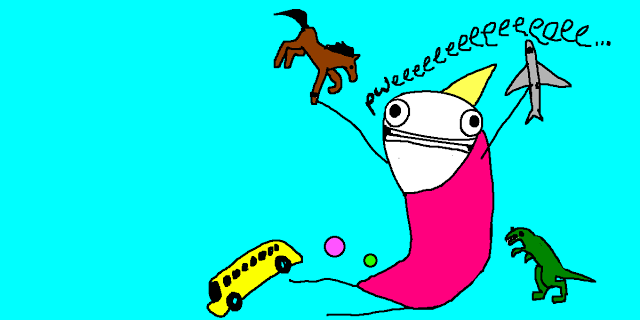
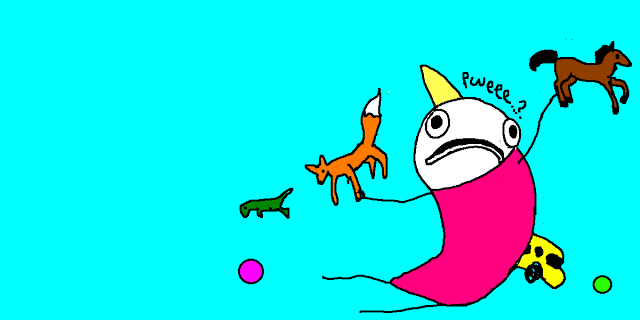
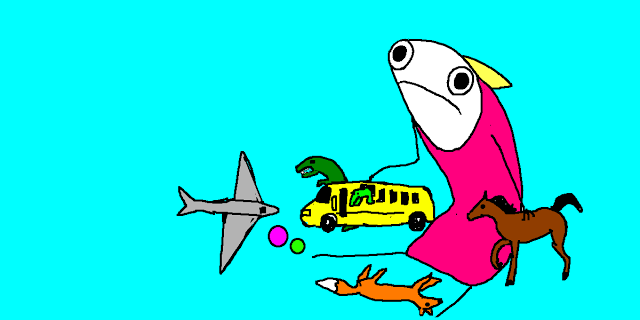
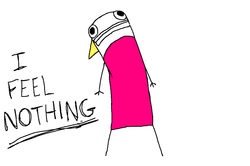

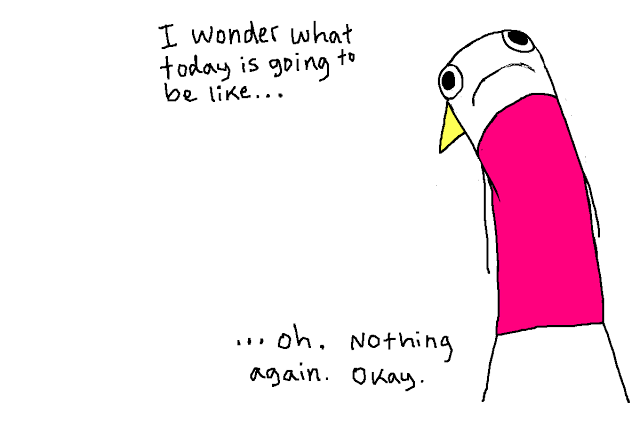
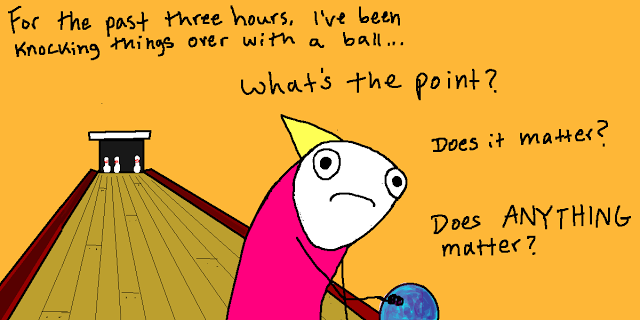
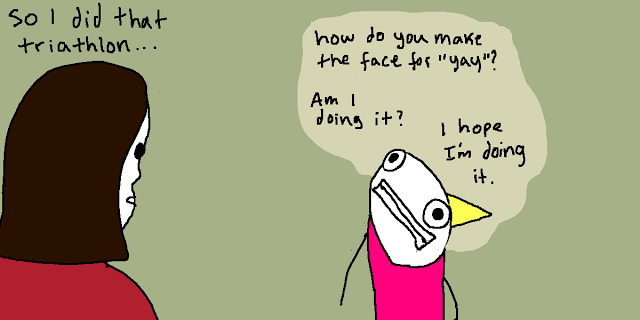
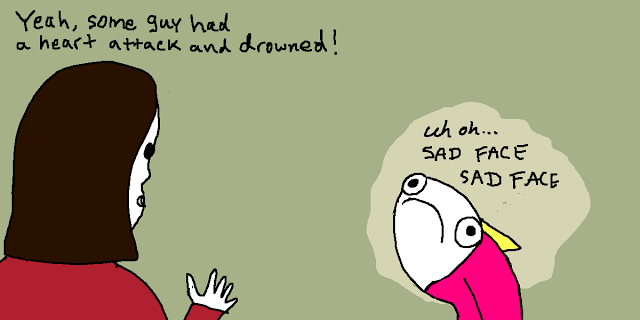
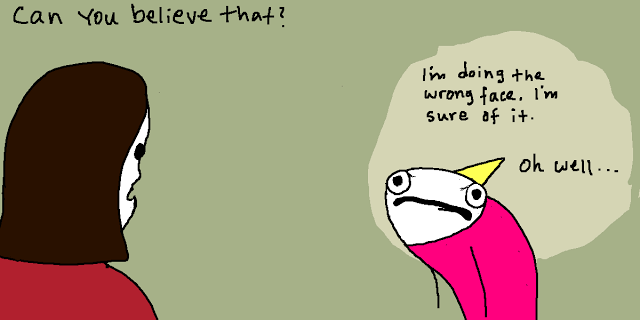
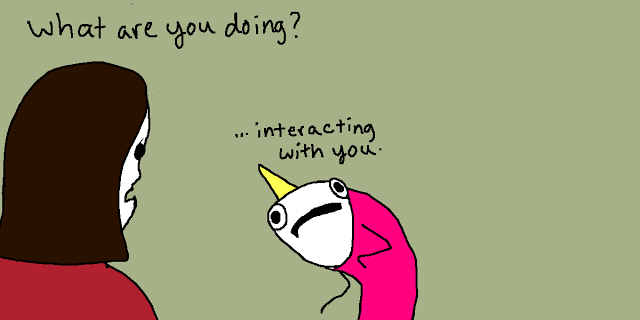
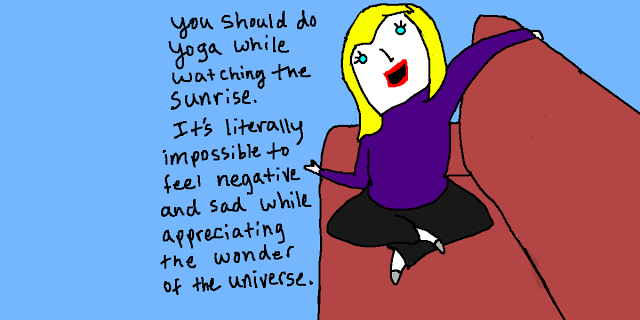

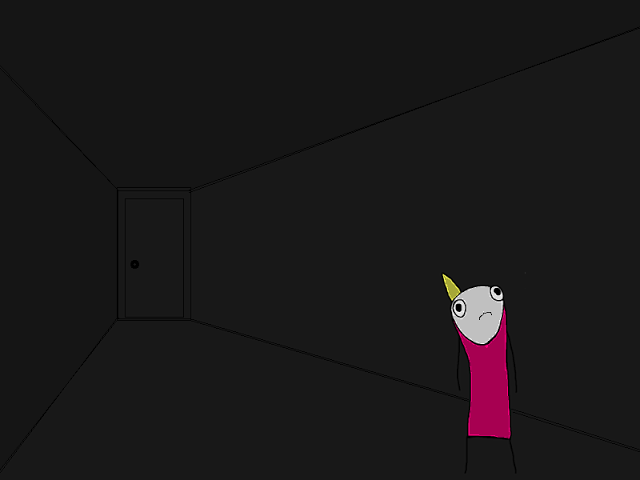
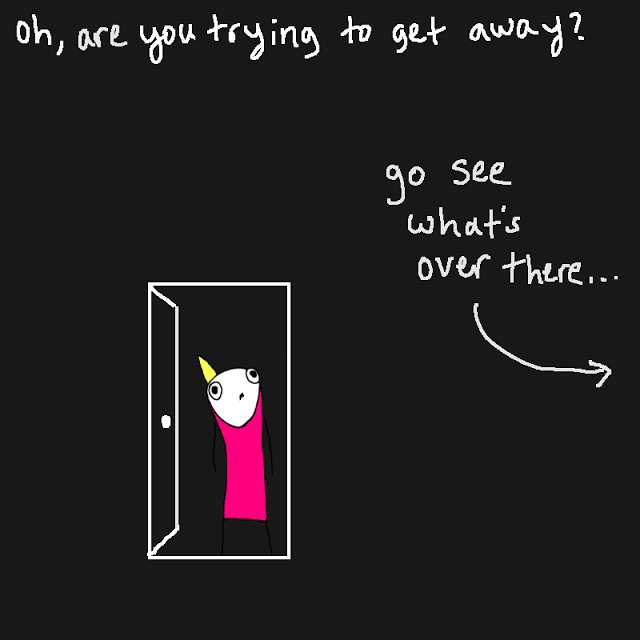
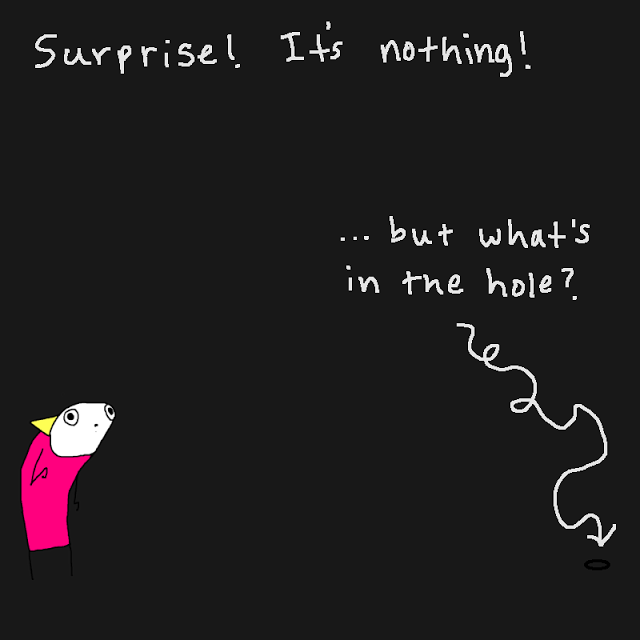
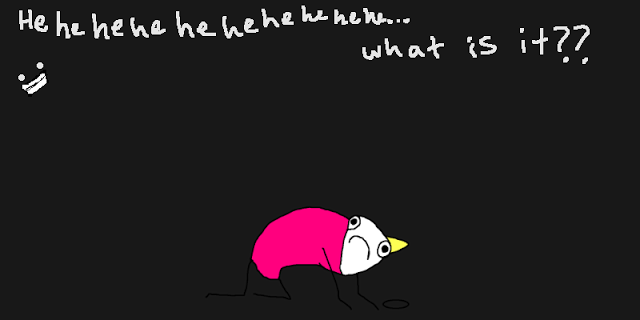
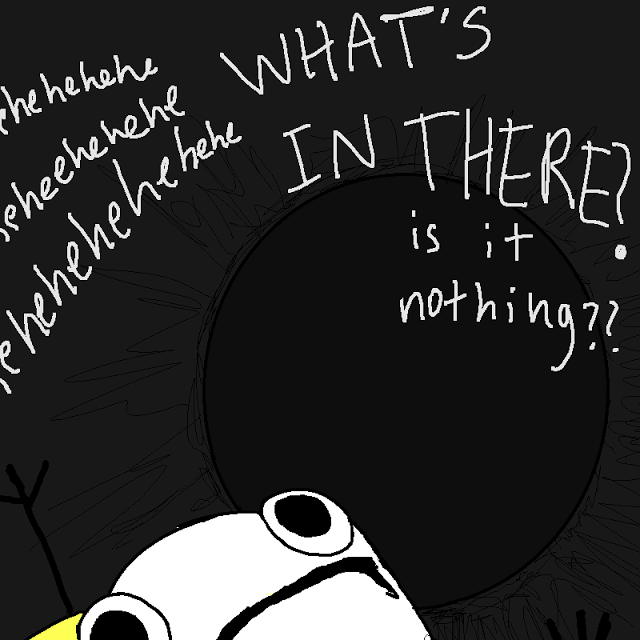
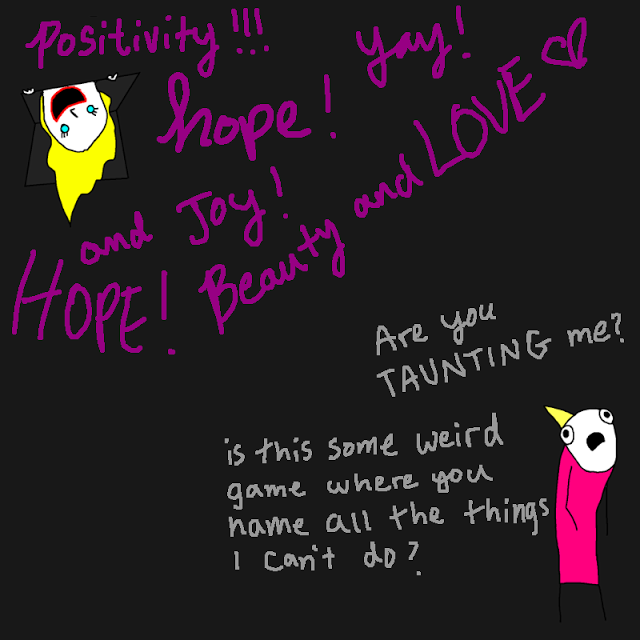
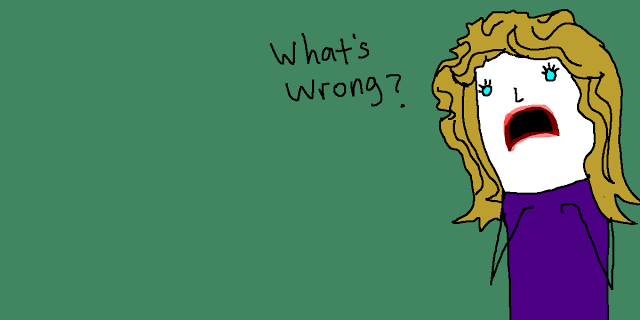
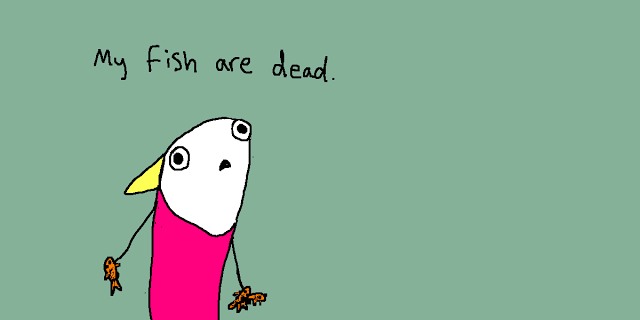
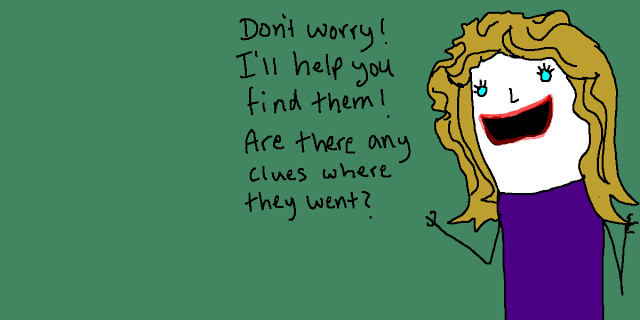
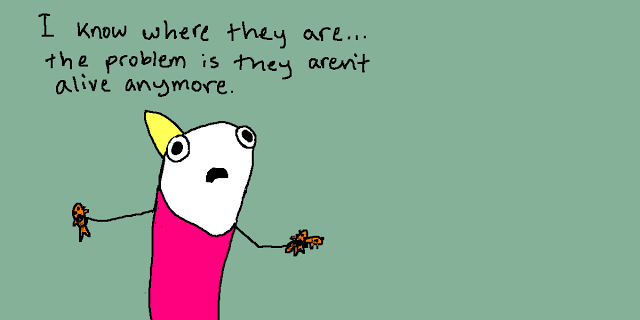
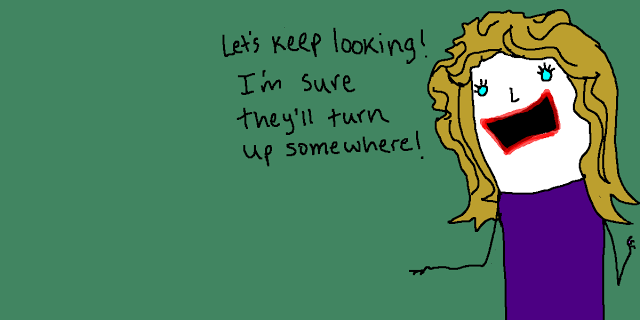
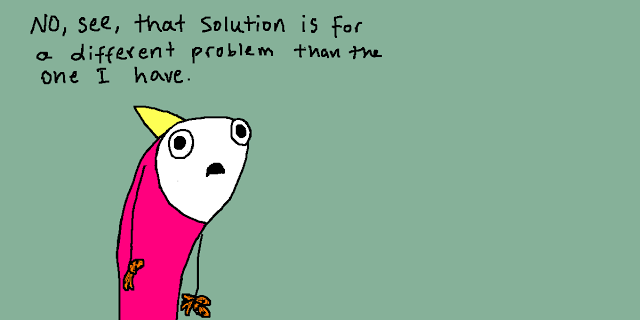
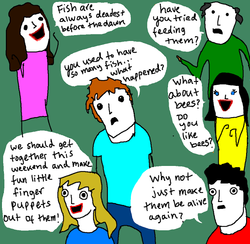
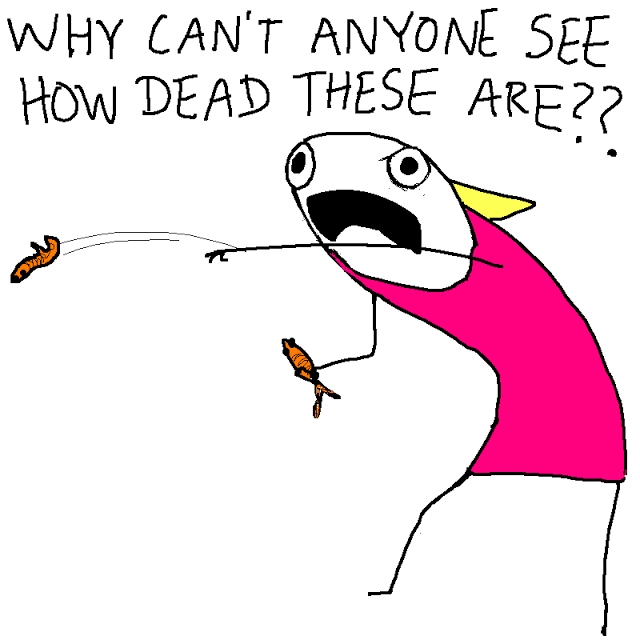
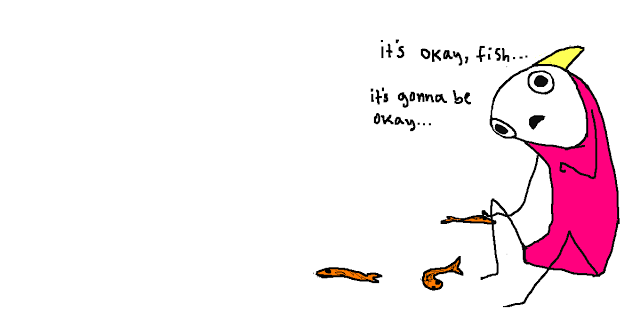
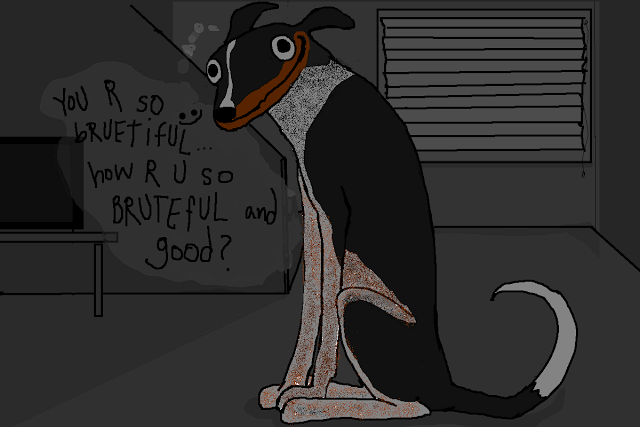
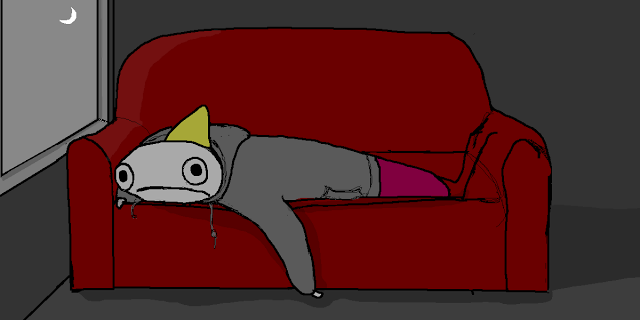
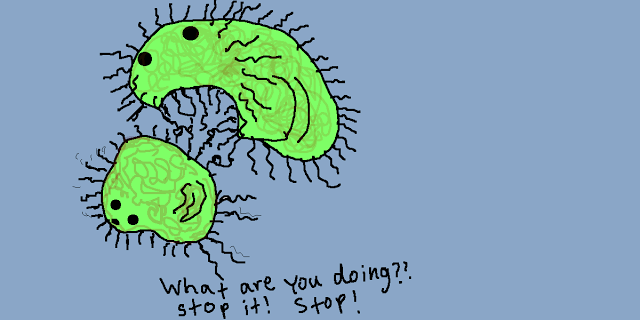
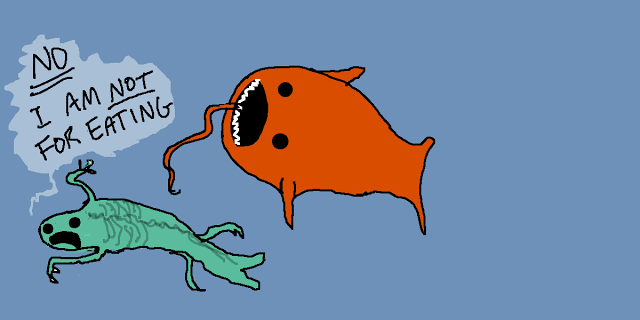
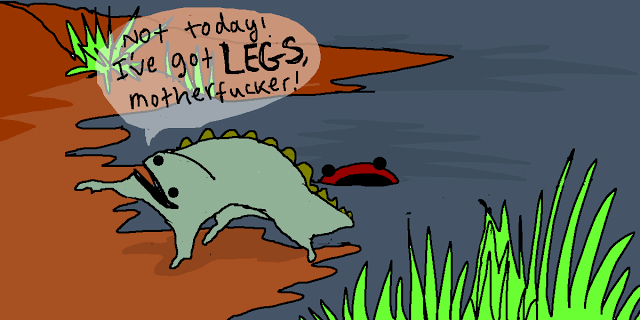
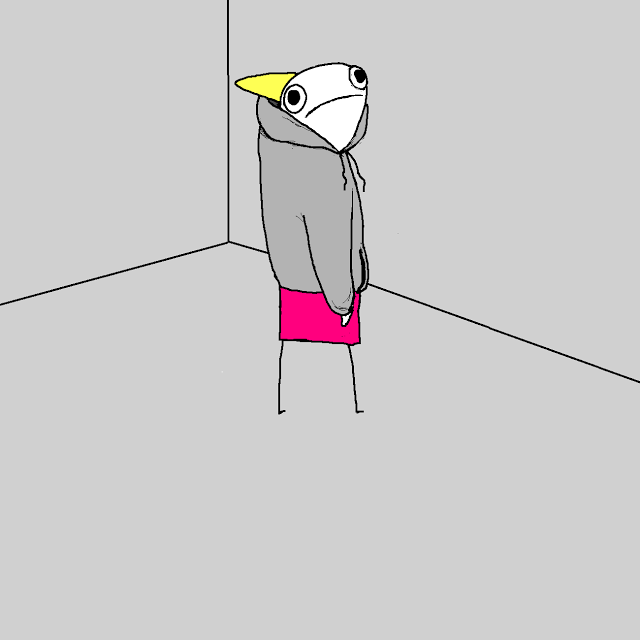
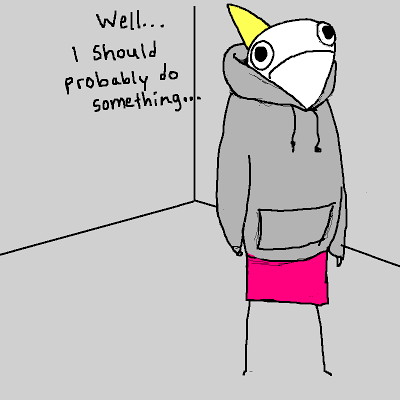
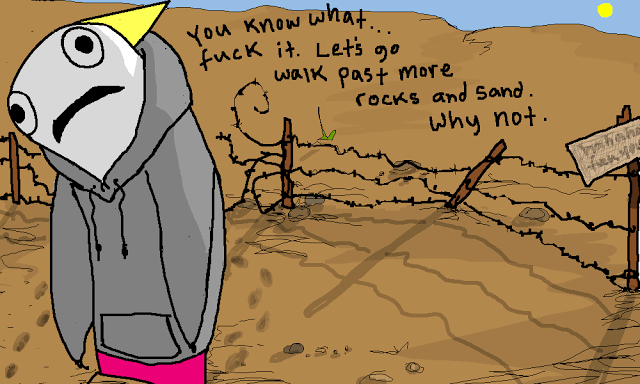




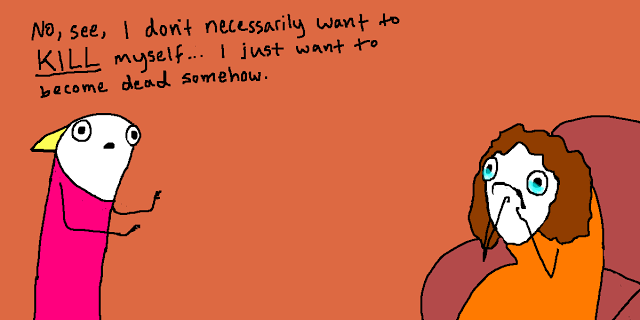
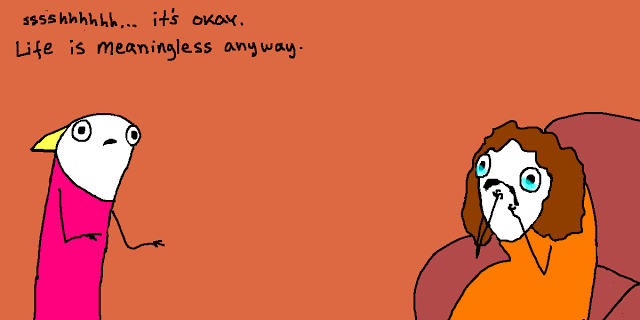
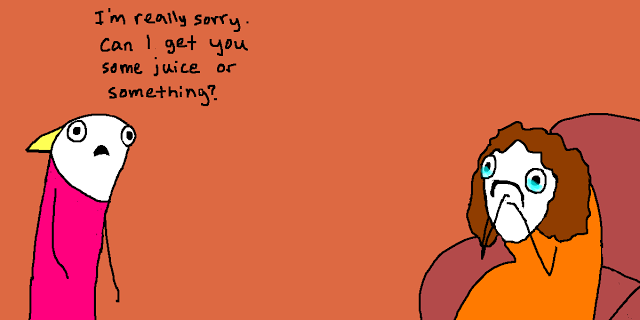
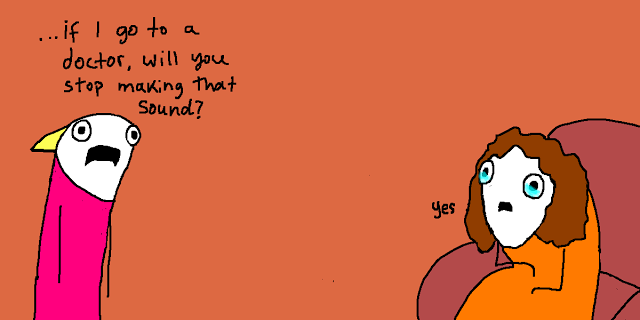
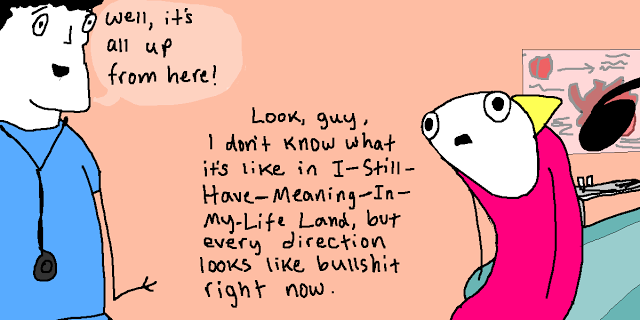
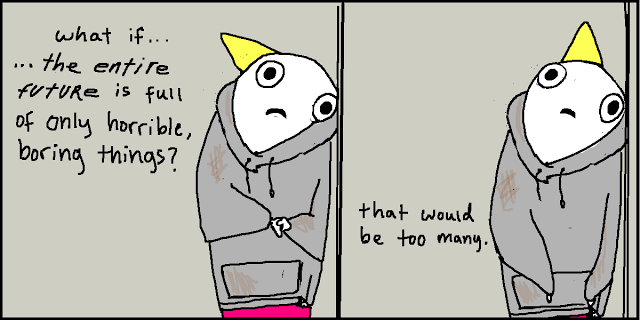
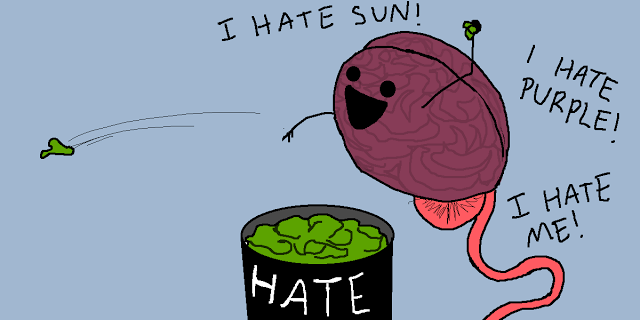
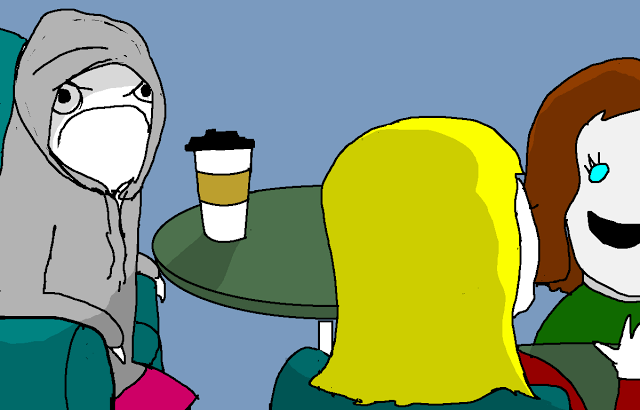
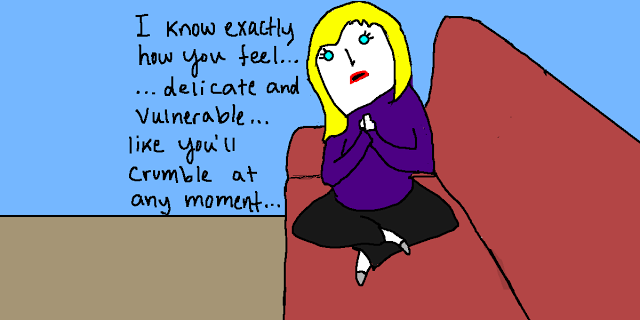
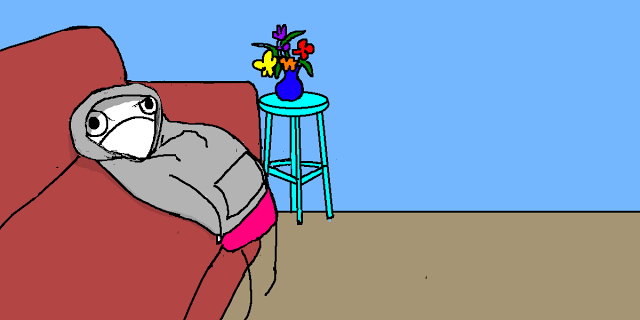
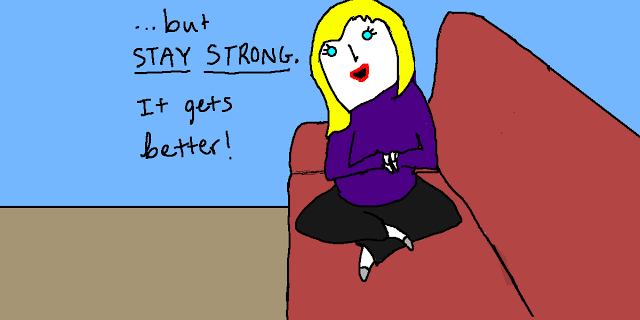
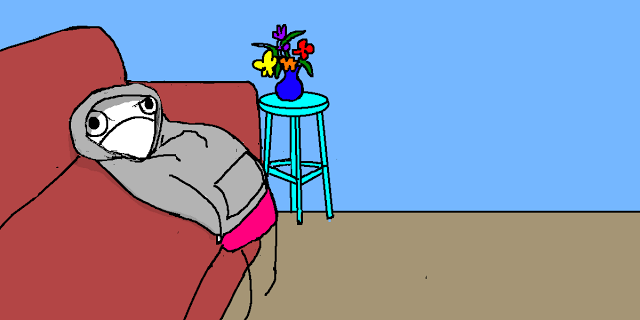
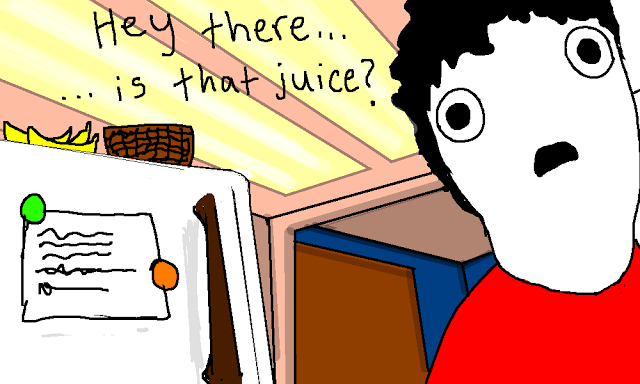
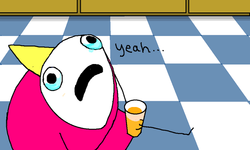
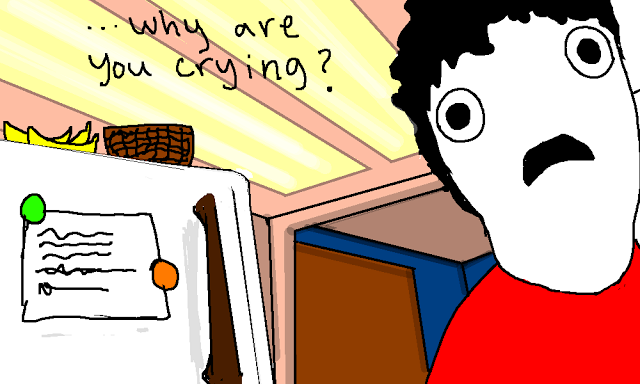
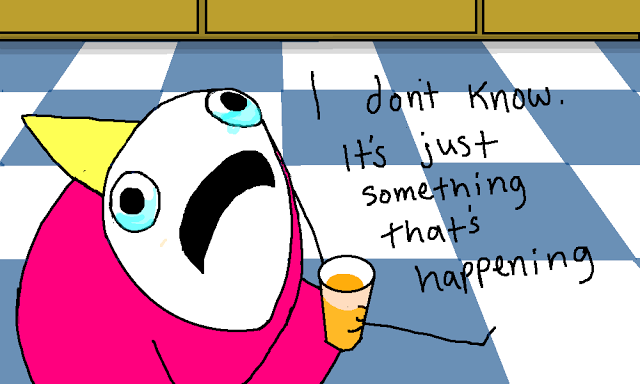
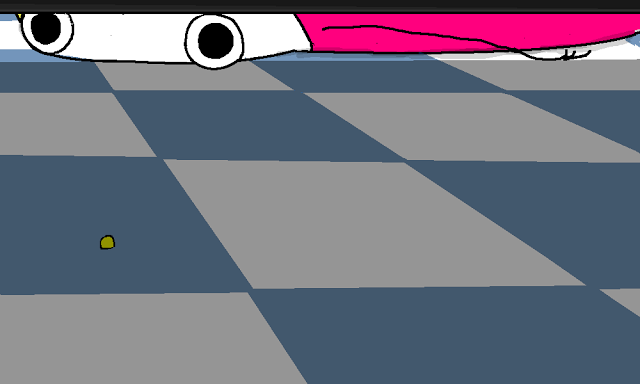
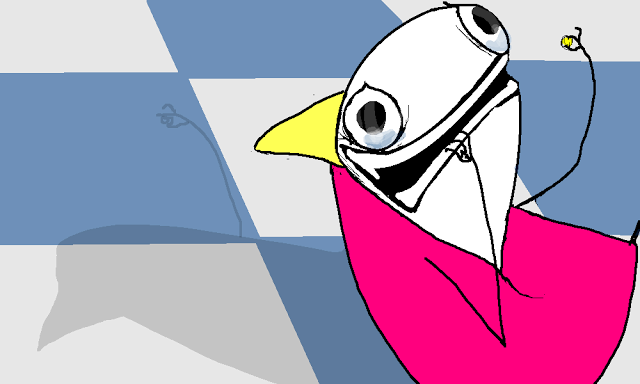











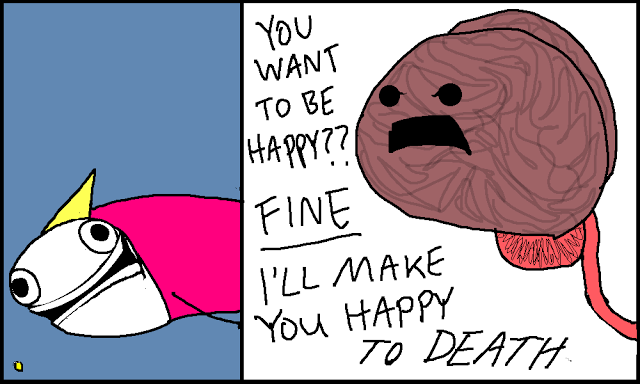
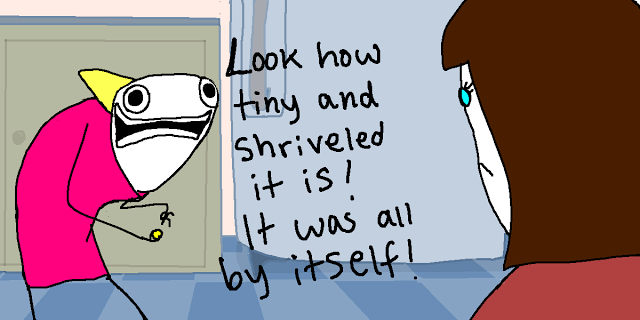
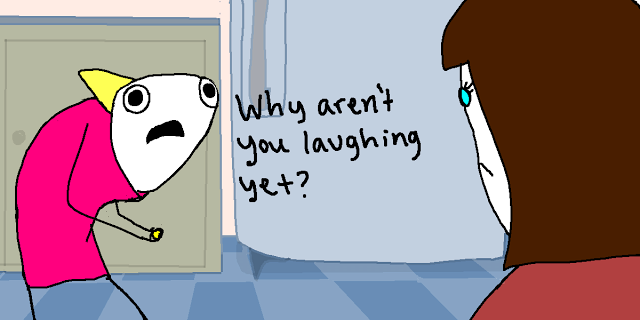
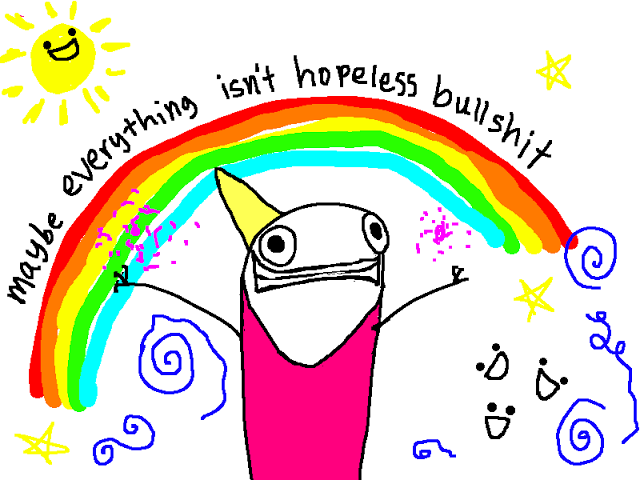
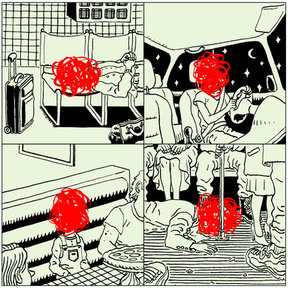




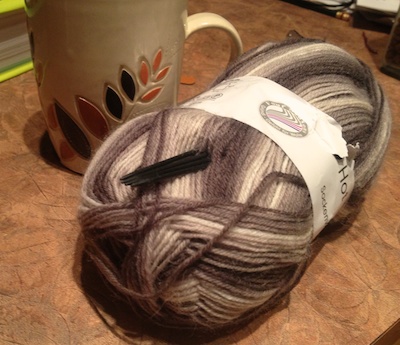
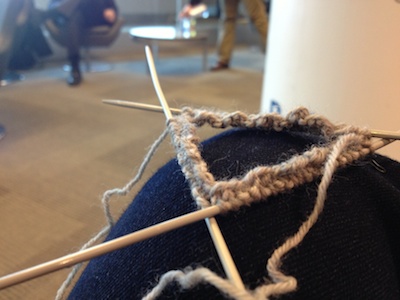
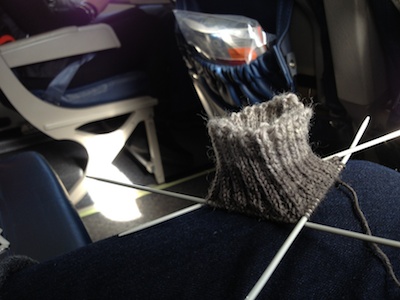
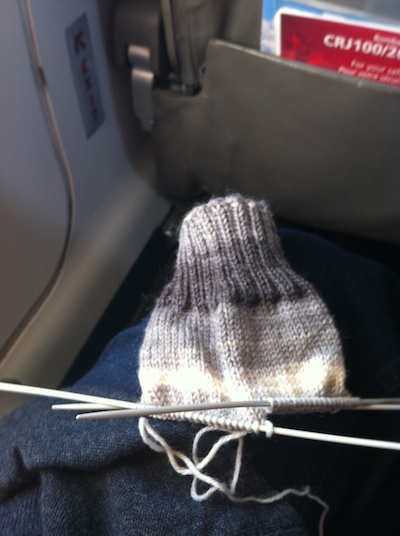
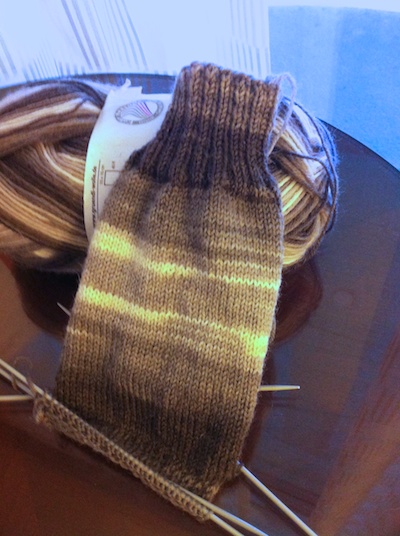
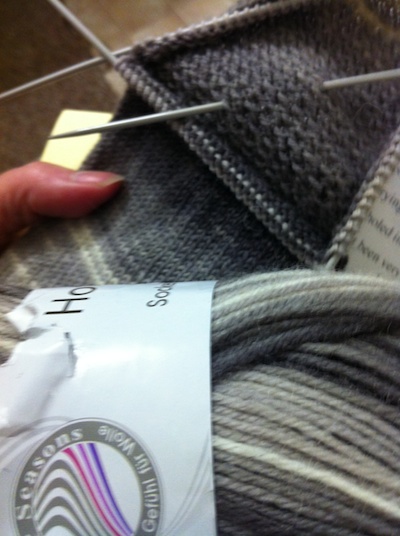
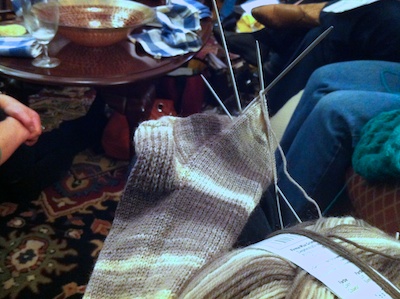
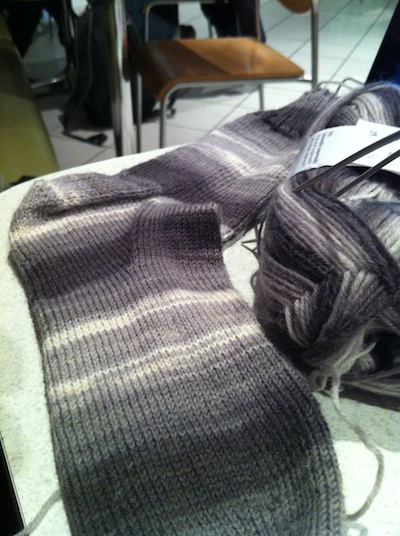
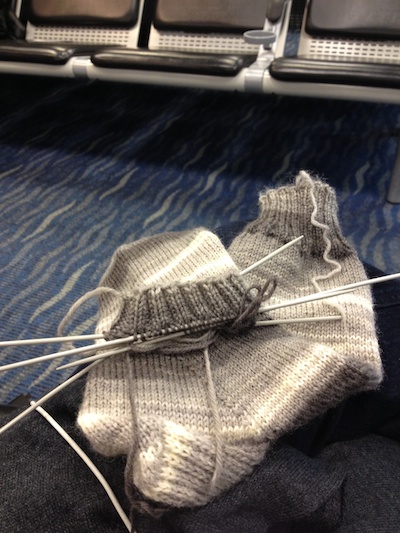
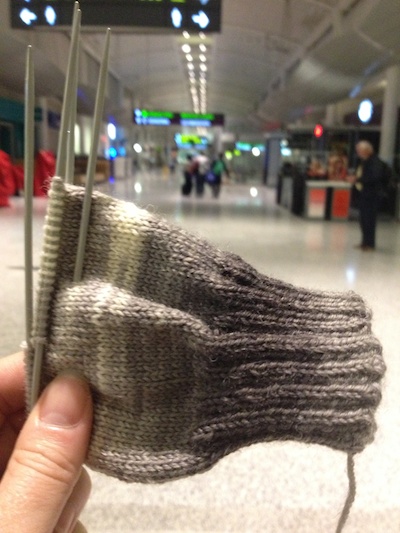
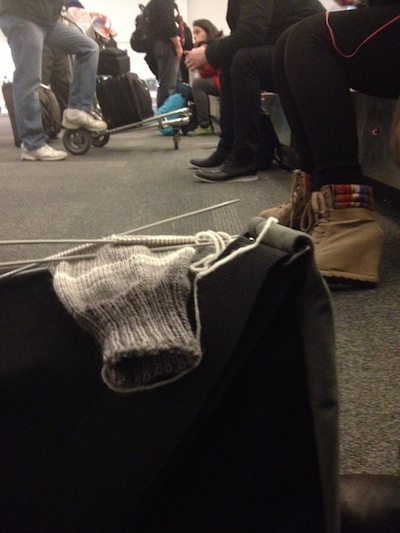
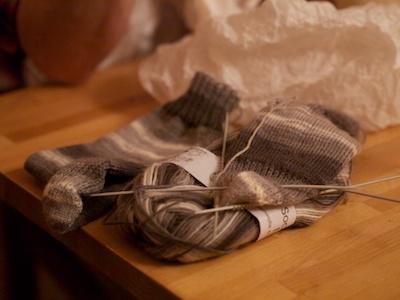
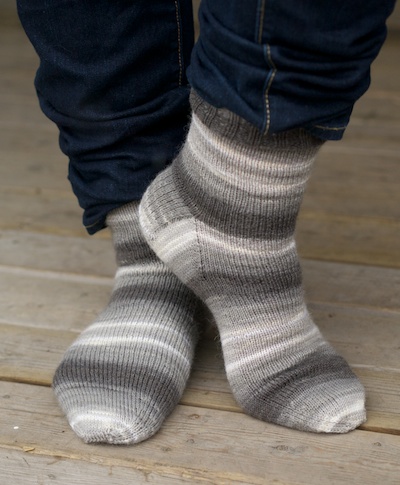
 RSS Feed
RSS Feed